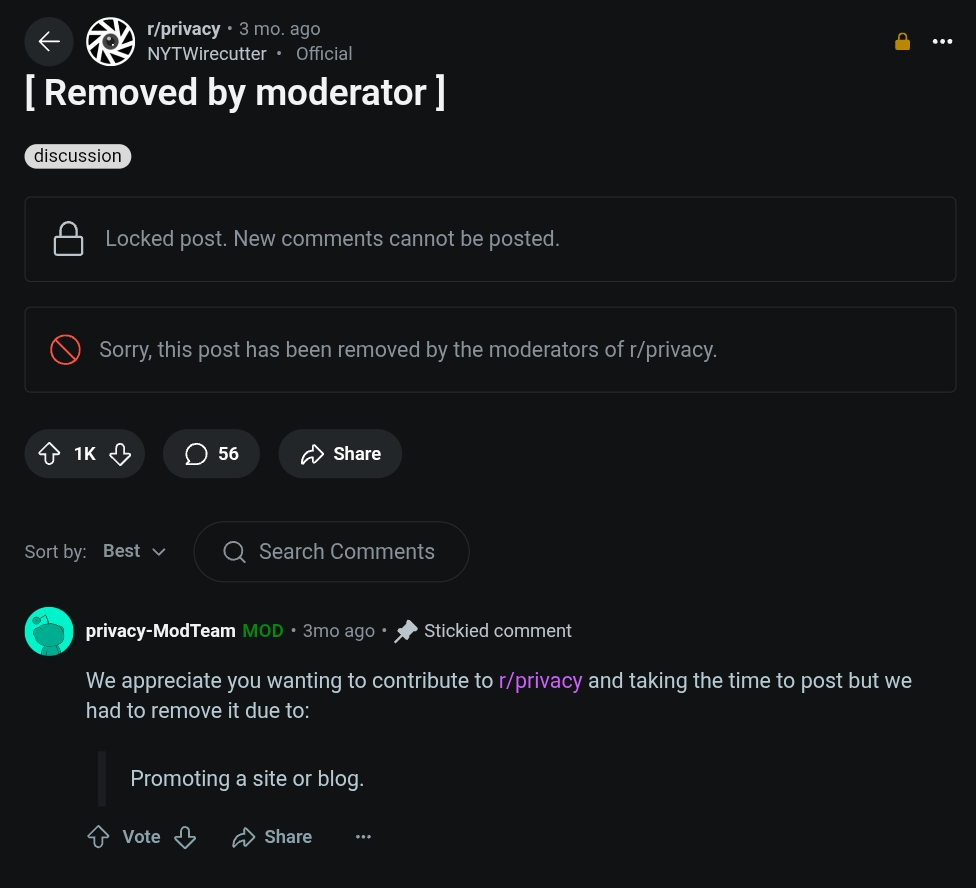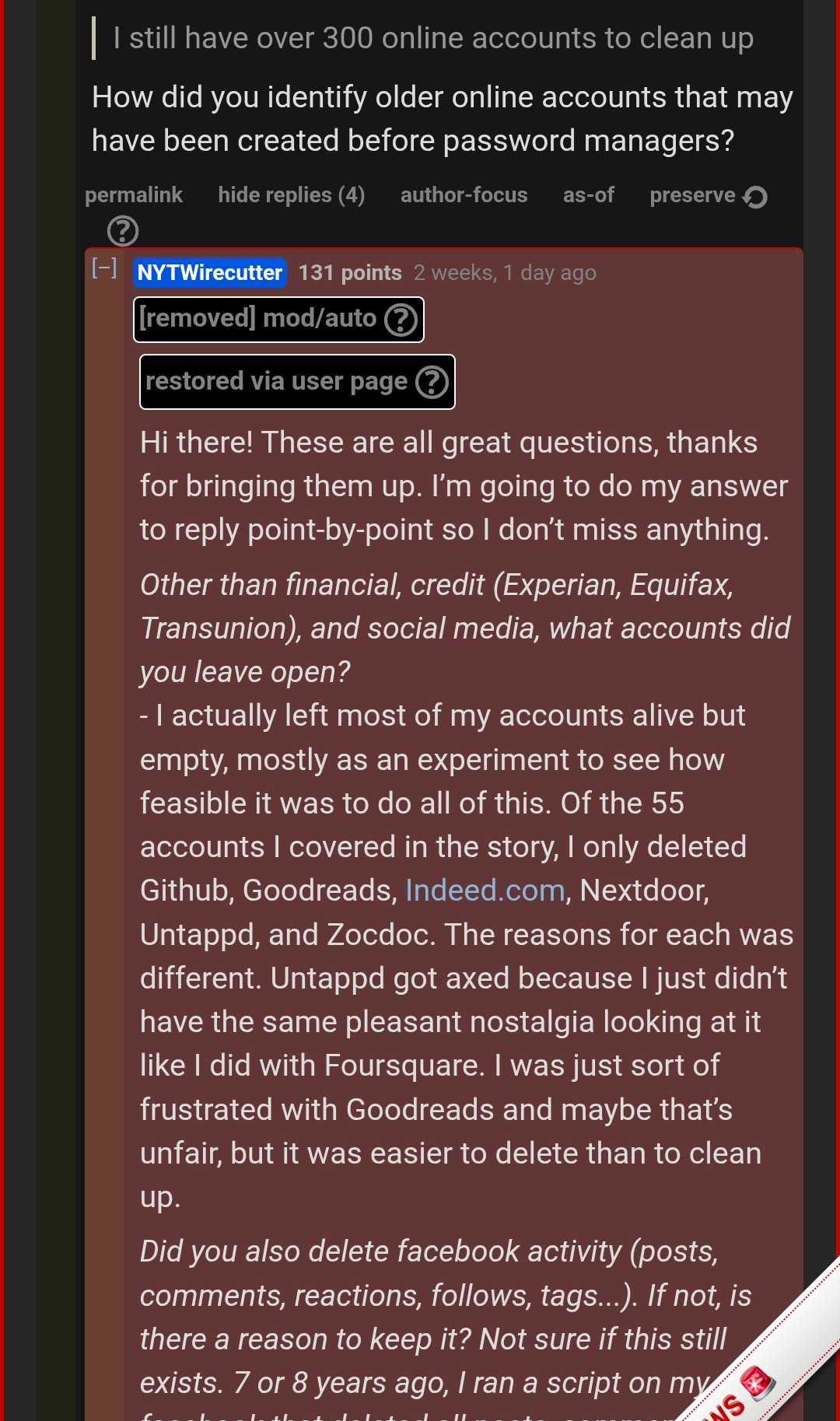
r/privacy moderators removed a New York Times Wirecutter journalist’s post and comments, accusing them of “promoting a site or blog” (this is not an applicable rule).
The journalist was in the comments talking with users, and the top comment was censored too.
Original post (gone now)
The same post on a different subreddit where it was not censored
Reddit mods…
!privacy@programming.dev for people unaware
Privacy sub has been compromised for years…
As with most major reddit subs, it is a narrative shaping operation
Removed comment from the journalist, which was well-received in the community:

Hi there! These are all great questions, thanks for bringing them up. I’m going to do my answer to reply point-by-point so I don’t miss anything.
Other than financial, credit (Experian, Equifax, Transunion), and social media, what accounts did you leave open?
- I actually left most of my accounts alive but empty, mostly as an experiment to see how feasible it was to do all of this. Of the 55 accounts I covered in the story, I only deleted Github, Goodreads, Indeed.com, Nextdoor, Untappd, and Zocdoc. The reasons for each was different. Untappd got axed because I just didn’t have the same pleasant nostalgia looking at it like I did with Foursquare. I was just sort of frustrated with Goodreads and maybe that’s unfair, but it was easier to delete than to clean up.
Did you also delete facebook activity (posts, comments, reactions, follows, tags…). If not, is there a reason to keep it? Not sure if this still exists. 7 or 8 years ago, I ran a script on my facebook that deleted all posts, comments, photos, and untagged, un-reacted, and un-followed everything. It took over 3 days to run and removed over 10k items/activities. - I did end up deleting most Facebook activity; I believe there were some posts that I felt okay leaving but I trashed the vast majority of it. The difficulty of the tools really became a problem here, because it’s not easy or intuitive to go through all that activity and there were limited options with what to do with them. Whether or not to keep Facebook ac…
Heil corporate ✊


